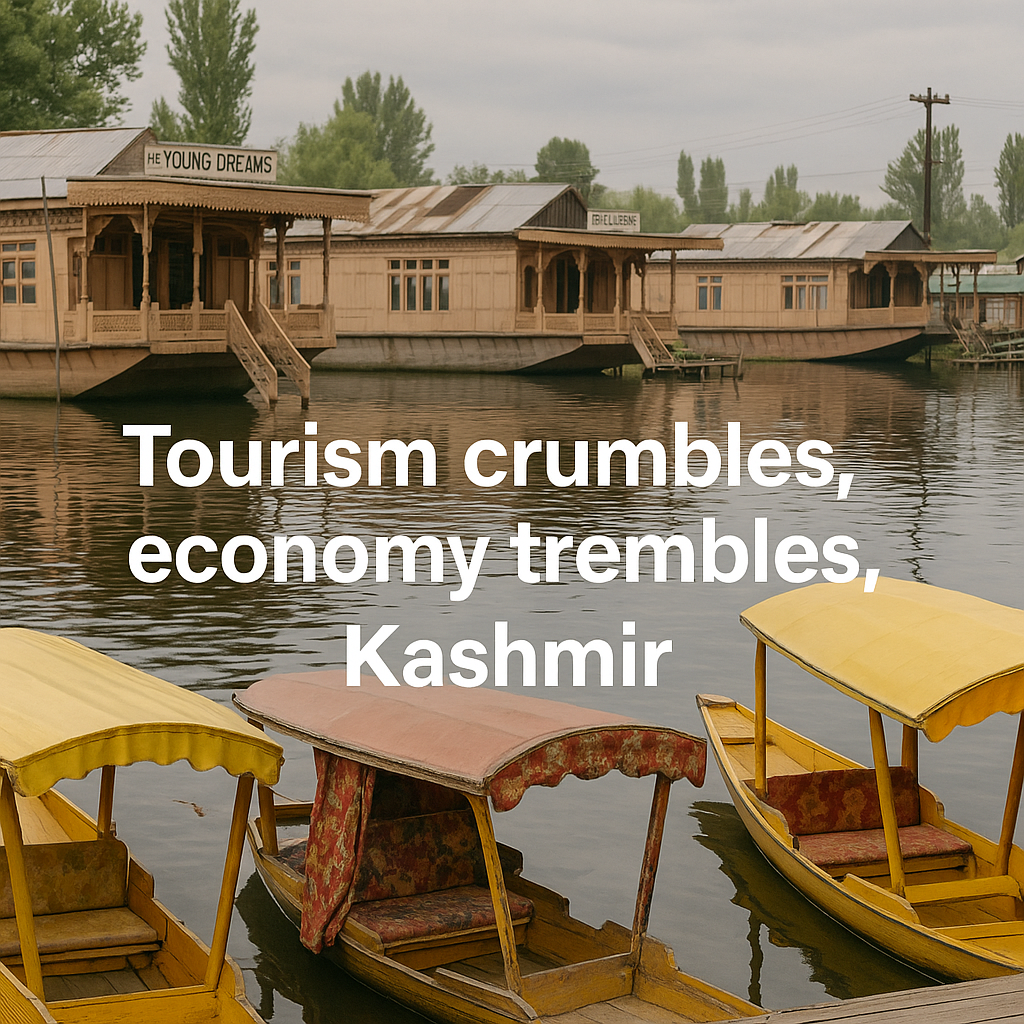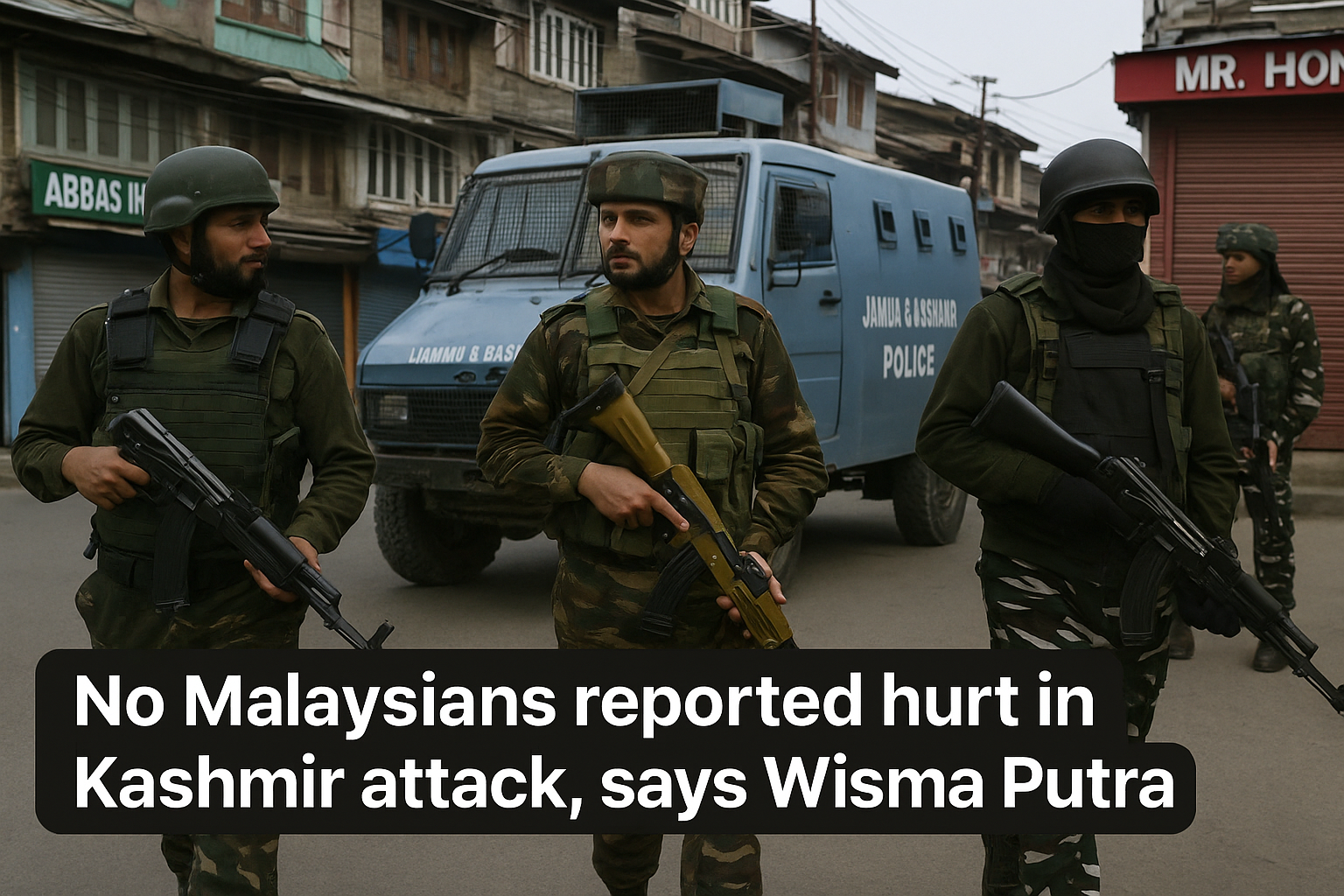The serene valleys of Kashmir, once alive with the laughter of tourists and the hum of hospitality, have turned eerily silent. Following the devastating terrorist attack in Pahalgam on April 22 that claimed 26 innocent lives, Kashmir’s tourism industry — a lifeline for thousands — is unraveling.
Hotels that once brimmed with life during the spring bloom now lie still. Corridors echo only with memories. The impact has been devastating — nearly 70% of workers in the hospitality sector have been let go, many without notice or severance. For those who made their living welcoming guests, this silence is deafening.
“I’ve had to let go of most of my staff,” shared one hotelier, eyes filled with regret. “It’s not just about business anymore. These people are like family. But without tourists, there’s simply no work.”
The blow has been harshest for seasonal workers — waiters, room attendants, cooks — many of whom migrate from rural areas to serve in Kashmir’s bustling hotels and guest houses during peak seasons. Now, with rooms empty and reservations cancelled, they return home with nothing but uncertainty.
Manzoor Ahmad, who worked at a hotel in Pahalgam, struggled to find the words. “One day we were setting up for the season, and the next, we were told to leave. No warning. No pay. I have children, elderly parents — what do I tell them?”
Even veterans of the industry are not spared. A seasoned chef with 30 years in Pahalgam choked back emotion: “I’ve cooked for guests from all over the world. Now, the kitchen is cold. No tourists, no income, no idea what the future holds.”
And it’s not just hotels. The collapse of tourism has triggered a chain reaction. Local drivers sit idle, their taxis gathering dust. Tour guides, once proud ambassadors of Kashmir’s history and beauty, are now without stories to tell. Shops that sell traditional crafts and shawls, dependent on tourist purchases, sit abandoned. Farmers and suppliers who provided fresh produce to hotels now face rotting stock and falling prices.
According to the Jammu and Kashmir Hotel and Restaurant Association (KHARA), the sector is in freefall. “We had all geared up for a promising tourist season,” said KHARA President Babar Chowdhary. “Many of us took out loans to improve our facilities. Now, we’re drowning in debt with no income in sight.”
Tourism contributes roughly 7–8% to Jammu and Kashmir’s Gross State Domestic Product — an economic engine valued at over ₹18,500 crore annually. But with the Pahalgam tragedy, that engine has stalled, threatening thousands of livelihoods.
Retailers are seeing sales plunge. Handicraft sellers fear extinction. Banks, too, brace for a wave of loan defaults from small businesses that may not survive the summer.
In response, industry voices are crying out for immediate help. They’re asking for emergency relief — loan moratoriums, interest waivers, and restructuring plans. Without such support, many fear the progress made over the last decade could vanish overnight.
“This isn’t just about saving businesses,” Chowdhary added. “It’s about saving families, saving dreams. If we don’t act now, it might be too late.”
Still, amidst the hardship, some cling to hope. A few hoteliers are trying to keep morale high and explore ways to rebuild confidence in Kashmir’s safety and beauty. But they all agree — recovery won’t happen alone. It will take a united effort from the government, private sector, and the people themselves.
For now, the people of Kashmir wait — not just for tourists to return, but for signs of compassion, support, and a path forward in these trying times.




